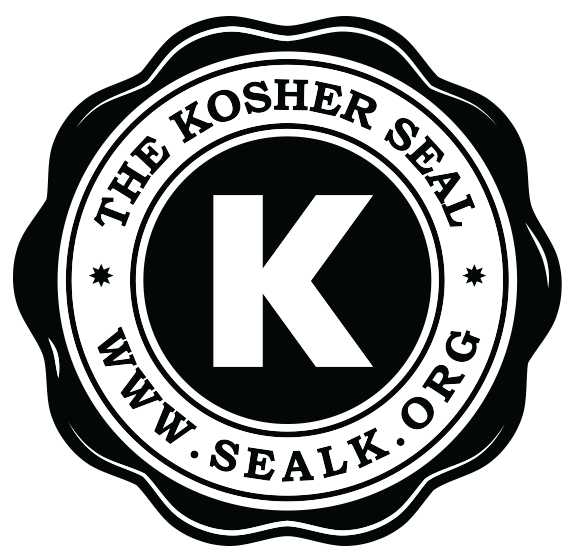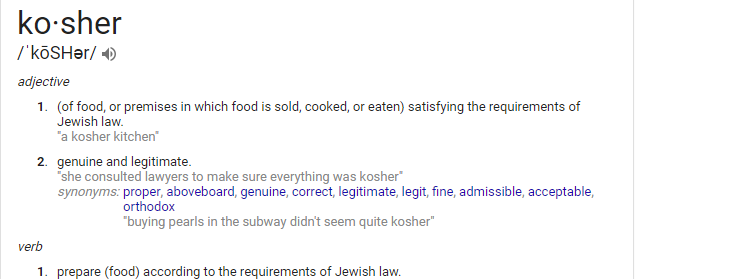Kosher Glossary
Bishul Yisroel (Bishul Yisrael) Applies to certain cooked foods for which a rabbinical supervisor has participated in the cooking process.
Pas Yisroel (Pat Yisrael) Applies to baked goods for which a rabbinical supervisor has participated in the baking process.
Cholov Yisroel (Chalav Yisrael). Applies to milk or derivative products for which a rabbinical supervisor has continuously supervised the milking process.
Chometz (Chametz). Literally: leaven. Items which are forbidden for consumption over the holiday of Passover.
Dairy, also called Milchig (Yiddish) or Chalav (Hebrew). Applies to food items that contain actual dairy ingredients, even in very small amounts, or that have been cooked or prepared in equipment previously used for milk products.
Meat, also called Fleishig (Yiddish) or Basar (Hebrew). Applies to food items that contain actual meat ingredients, even in very small amounts, or that have been cooked or prepared in equipment previously used for meat products.
Parve (adjective), denotes a food that is neither meat nor dairy. Fish, eggs, and vegetables are pareve by nature.
Kosher (adjective), literally: proper or fit. In a food context, denotes food that has been prepared according to all the Jewish dietary laws, under rabbinical approval or supervision.
Kasher (verb), the process of making a something kosher, utensil, equipment, kitchen area
Pesach, Passover, an important Jewish springtime holiday commemorating the exodus of the Jewish nation from Egypt. Matzah is eaten at Passover time. The consumptions of leavened bread and several other significant foods are forbidden. Even a facility that is already kosher may need to be specially kashered and inspected for Passover use.
Rabbi, an individual with rabbinical ordination. Rabbis who specialize in kashrut have been trained and tested in the complex areas related to food production, meat product preparation, questions of milk and meat combinations, supervision of food production personnel, and other details.


